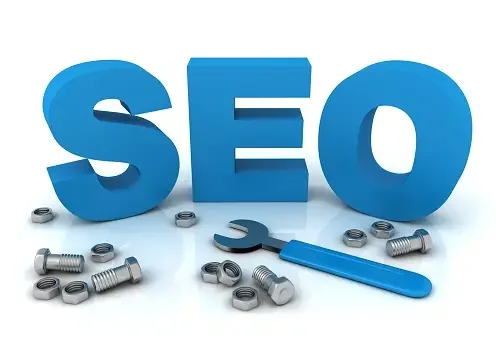Boost Your Website’s Ranking with These 7 Powerful SEO Techniques and Tools

Boosting your website’s ranking is crucial in today’s competitive online landscape, and you can achieve it by implementing seven powerful SEO techniques and utilizing effective tools. By understanding the fundamentals of SEO and conducting thorough keyword research, you can optimize your website’s content to align with your audience’s search intent.
On-page optimization techniques, such as optimizing meta tags and incorporating keywords naturally, enhance your website’s visibility in search engine results. Off-page optimization strategies, including building high-quality backlinks and leveraging social media, increase your website’s authority.
Technical SEO ensures your website is crawlable and indexable by search engines, while content marketing establishes your expertise and attracts organic traffic. Finally, leveraging the power of SEO tools and plugins provides valuable insights, competitor analysis, and performance tracking. By implementing these techniques and tools, you can significantly improve your website’s ranking and drive organic traffic.
Introduction
In today’s competitive online landscape, having a high-ranking website is essential for driving organic traffic and reaching a wider audience. Search Engine Optimization (SEO) plays a vital role in improving your website’s visibility on search engines like Google. By implementing effective SEO techniques and utilizing powerful tools, you can enhance your website’s ranking and attract more visitors. In this article, we will explore seven powerful SEO techniques and tools that can help boost your website’s ranking and drive organic traffic.
Understanding SEO
Before diving into the techniques and tools, let’s understand the fundamentals of SEO. SEO involves optimizing various aspects of your website to improve its visibility on search engine results pages (SERPs). The ultimate goal is to rank higher for relevant keywords and attract targeted organic traffic. SEO encompasses on-page optimization, off-page optimization, technical SEO, and content marketing.
Keyword Research
Effective keyword research serves as the cornerstone for developing a prosperous SEO strategy. It involves identifying the keywords and phrases your target audience uses when searching for products or services similar to yours. By comprehending the underlying search intent behind these keywords, you have the ability to craft content that precisely caters to the needs and preferences of your target audience. Tools like Google Keyword Planner, SEMrush, and Ahrefs can assist you in identifying relevant keywords with high search volume and low competition.
On-Page Optimization
On-page optimization focuses on optimizing individual web pages to improve their visibility on search engines. This technique involves optimizing meta tags, headings, URLs, and content for relevant keywords. By incorporating keywords naturally throughout your content and optimizing elements like title tags and meta descriptions, you can improve your website’s chances of ranking higher in search results. Content management systems (CMS) like WordPress offer plugins such as Yoast SEO and Rank Math that simplify on-page optimization.
Off-Page Optimization
Off-page optimization encompasses a range of activities conducted beyond the confines of your website, with the aim of bolstering its visibility and authority in the online realm. One of the most effective off-page optimization techniques is building high-quality backlinks from reputable websites. Guest blogging, social media marketing, influencer outreach, and online directories can help you acquire valuable backlinks. Tools like Moz, Ahrefs, and Majestic can assist you in analyzing your backlink profile and tracking your off-page optimization efforts.
Technical SEO
Technical SEO concentrates on optimizing the technical elements of your website, aiming to enhance its crawlability and indexability for search engines. By fine-tuning factors like website speed, mobile responsiveness, URL structure, and XML sitemaps, you can ensure that search engines can efficiently navigate and index your website’s content. It involves optimizing website speed, mobile responsiveness, URL structure, site architecture, and XML sitemaps. Tools like Google Search Console and Screaming Frog can help you identify technical issues and provide insights to improve your website’s overall performance.
Content Marketing
Content marketing is an integral part of any SEO strategy. Creating high-quality, informative, and engaging content helps attract organic traffic and build your website’s authority. By producing content that answers your audience’s questions and solves their problems, you can position yourself as an industry expert. Utilize different content formats such as blog posts, videos, infographics, and eBooks to cater to different user preferences.
SEO Tools and Plugins
Several powerful SEO tools and plugins are available to simplify and enhance your SEO efforts. These tools provide valuable insights, keyword research data, competitor analysis, and performance tracking. Some popular tools include Google Analytics, Google Search Console, SEMrush, Moz, Ahrefs, Yoast SEO, and Rank Math. By utilizing these tools effectively, you can gain a competitive edge and make data-driven decisions to improve your website’s ranking.
Conclusion
Improving your website’s ranking requires a comprehensive approach to SEO. By implementing the seven powerful techniques discussed in this article and leveraging the right tools, you can enhance your website’s visibility, attract more organic traffic, and ultimately achieve better rankings on search engine results pages. It is vital to bear in mind that SEO is a continuous endeavor, requiring you to remain abreast of the latest trends and algorithmic updates to achieve sustained success in the long run.
FAQs
1. How long does it take to see results from SEO?
- The timeline for observing results from SEO can vary based on several factors, such as industry competitiveness, the quality of optimization efforts, and the website’s current state. While some improvements may be noticeable within a few weeks, significant and lasting results often require consistent and strategic SEO practices over an extended period. It’s important to understand that SEO is a long-term investment, and the time it takes to see results can vary from website to website. Patience, persistence, and a focus on providing valuable content and optimizing your website are key to achieving favorable outcomes in the realm of SEO.
2. Are SEO tools worth the investment?
- Yes, SEO tools can be highly beneficial for optimizing your website and tracking performance. They provide valuable insights, keyword research data, and competitor analysis, and help you make data-driven decisions. While some SEO tools require an investment, their ability to streamline and enhance your optimization efforts can be well worth the cost. It’s essential to choose tools that align with your specific needs and budget.
3. Can I do SEO myself, or should I hire an expert?
- You can certainly handle basic SEO tasks yourself, especially with the abundance of online resources and guides available. However, for more complex strategies and technical aspects of SEO, it can be beneficial to hire an SEO expert. They possess the knowledge, experience, and industry insights to implement advanced techniques and optimize your website effectively. The decision ultimately depends on your available time, expertise, and budget.
4. How often should I update my website’s content?
Regularly updating your website’s content is essential for both SEO and user engagement. Aim to publish fresh content consistently, whether it’s in the form of blog posts, articles, or other media. The frequency of updates depends on various factors such as your industry, target audience, and available resources. It’s important to strike a balance between providing valuable, informative content and maintaining a reasonable publishing schedule.
5. Is mobile optimization important for SEO?
- Absolutely. With the increasing use of mobile devices, search engines prioritize mobile-friendly websites. Optimizing your website for mobile responsiveness ensures that it provides a seamless user experience across different devices. This enhances user satisfaction, reduces bounce rates, and contributes to improved SEO performance. Mobile optimization includes factors like responsive design, fast loading speed, and easy navigation on mobile devices.




